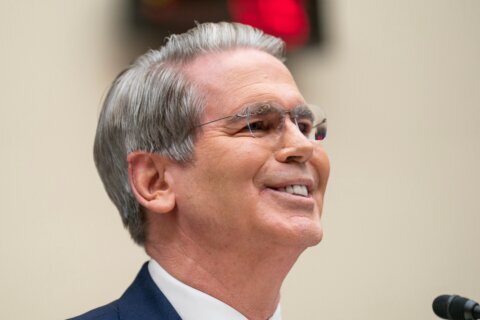

Loving your job is a good thing, and the vast majority of D.C.’s professionals are engaged with what they do — but strong job engagement can have its drawbacks.
In a Robert Half survey, 83% of D.C. professionals responded that they are somewhat or very engaged in their work — 20% higher than the nationwide average.
“D.C. professionals do like their jobs because there are benefits outside of just what they’re doing, Trey Barnette from Robert Half’s D.C. office told WTOP. “Washington is a big city for a lot of nonprofits, so people are very passionate about the mission of the companies they work for.”
But strong job engagement isn’t all positive news, Barnette said. Home and personal life can suffer if the job comes first. Passionate engagement can also lead to burnout.
And loving your job could get in the way of advancing your career.
“It creates complacency. You are just very comfortable in the position that you are in, so sometimes when there are promotional or upward-mobility opportunities, you won’t look at them or you’ll be passed up,” Barnette said.
According to Robert Half’s survey of D.C. professionals, the top reasons cited by those not feeling engaged in their job are lack of direction from employers, no set goals, and a hostile work environment.









